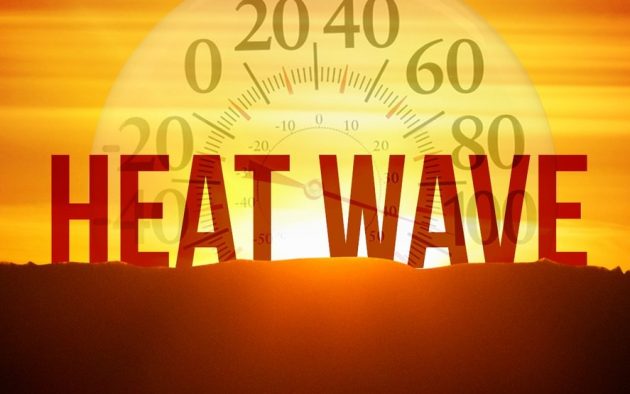
We are at the height of summer, and high temperatures can create uncomfortable conditions. We have come through the warmest May on record and the second warmest June on record. There have been a few days when Heat Advisories have been issued when the heat index reached the 105 to 110 degree or higher range. Several folks have suffered from heat exhaustion, dehydration, and other heat related illnesses. When the air is dry, sweat evaporates and cools the skin.  When the air is humid, as it has been in our part of the world, sweat doesn’t evaporate as well and the body is unable to cool down. Needless to say, this has been one of the more humid and hottest summers in several years. With temperatures so hot, and the air so humid, many are looking for new ways to cope with the season’s heat. The best way to be safe is to stay hydrated and keep indoors during peak sun hours. However, even inside can get steamy. If you don’t have an air-conditioner to rely on, or if that still isn’t cutting it, here are a few unconventional ways to stay cool this summer. Start with what you eat.
When the air is humid, as it has been in our part of the world, sweat doesn’t evaporate as well and the body is unable to cool down. Needless to say, this has been one of the more humid and hottest summers in several years. With temperatures so hot, and the air so humid, many are looking for new ways to cope with the season’s heat. The best way to be safe is to stay hydrated and keep indoors during peak sun hours. However, even inside can get steamy. If you don’t have an air-conditioner to rely on, or if that still isn’t cutting it, here are a few unconventional ways to stay cool this summer. Start with what you eat.
 Salads Staying hydrated is key to keeping cool. When the afternoon sun has you sweating, it’s easy to dehydrate, leaving the body hot and fatigued. Lettuce is 95 percent water so it keeps you both cool and hydrated. Throw some cucumbers on top, which are 96 percent water, and you’ve found the ideal summer meal.
Salads Staying hydrated is key to keeping cool. When the afternoon sun has you sweating, it’s easy to dehydrate, leaving the body hot and fatigued. Lettuce is 95 percent water so it keeps you both cool and hydrated. Throw some cucumbers on top, which are 96 percent water, and you’ve found the ideal summer meal.
Watermelon Not only is watermelon a summer staple for picnics and barbecues, but it’s 90 percent water. “The pink flesh contains vitamins C and A and the antioxidant lycopene—which helps in protecting you from the sun too,” according to Tanya Zuckerbrot, registered dietitian in New York City and the creator of The F-Factor Diet. “This is the perfect snack to cool off and replenish electrolytes that are lost as you sweat in the sun.”
Hot Peppers Spicy foods are a great way to beat the heat. While it  may sound strange, eating spicy foods can actually cool your body down. Eating something that will cause sweating, nature’s way of cooling us down, will allow you to withstand the sun. Sweating can lead to dehydration, though, so make sure to consume substantial water throughout the day.
may sound strange, eating spicy foods can actually cool your body down. Eating something that will cause sweating, nature’s way of cooling us down, will allow you to withstand the sun. Sweating can lead to dehydration, though, so make sure to consume substantial water throughout the day.
Mint Fresh mint can be grown in the garden and provides an instant cooling sensation. It’s a zero-calorie addition that will freshen any drink or snack.
Non-Alcoholic Beverages Skip the margaritas and mojitos. A summertime cocktail might seem like just the thing for a warm evening, but too much alcohol can cause your body to lose water. If water starts to sound bland, rethink your ice cubes. Adding frozen berries, grapes or melon chunks to sparkling water is a refreshing way to switch things up.
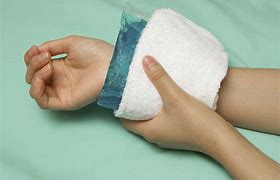 Other things you may want to try is cooling your pulse. The National Sleep Foundation recommended placing a damp washcloth in the freezer to create an easy, cooling compress. Placing the frozen cloth on your wrists or any pulse points will bring an icy shock to your body. If you do not have an ice pack, leave your wrists under cold, running water for 30 seconds. This will cool the blood in your veins and provide some instant relief. You can also turn everyday products into a cooling sensations simply by storing them in the refrigerator. Sunscreen, lotions, toners, creams and even perfume can all be kept safely in the fridge to give you a refreshing lift upon application. Finally… Certain medications may make some people more susceptible to heat-related illness, but pharmacists say you can counteract these side effects with a few simple choices when you’re in the sun.
Other things you may want to try is cooling your pulse. The National Sleep Foundation recommended placing a damp washcloth in the freezer to create an easy, cooling compress. Placing the frozen cloth on your wrists or any pulse points will bring an icy shock to your body. If you do not have an ice pack, leave your wrists under cold, running water for 30 seconds. This will cool the blood in your veins and provide some instant relief. You can also turn everyday products into a cooling sensations simply by storing them in the refrigerator. Sunscreen, lotions, toners, creams and even perfume can all be kept safely in the fridge to give you a refreshing lift upon application. Finally… Certain medications may make some people more susceptible to heat-related illness, but pharmacists say you can counteract these side effects with a few simple choices when you’re in the sun.
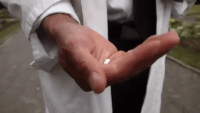 You should continue to take your prescription or over-the-counter medications, but experts suggest asking a doctor or pharmacist about how the drugs affect your body when you are outside in hot, bright sunlight. Some medications can constrict the blood vessels and reduce blood flow to the skin, according to Emily Holm, PharmD., a Mayo Clinic Health System pharmacist. The body needs to maintain a core temperature. So in a hot environment, blood flow needs to be increased to the skin to radiate heat into the atmosphere, which cools the body down. Over-the-counter decongestants such as Sudafed (phenylephrine) and prescription stimulants for attention-deficit/hyperactivity disorder, like Adderall or Concerta, could interfere with a patient’s ability to cool down. Beta blockers, like metoprolol, can also make it harder to regulate body temperature. “To radiate heat out of the body and increase the blood flow to the skin, your heart is going to have to work harder and pump faster,” Holm said. “If you are on medications such as beta blockers for either blood pressure or heart arrhythmia, those medications slow the heart rate down and that can also block that blood from increasing blood flow to the skin. “According to Holm, drugs with anticholinergic side effects will dry you up in general. When you can’t sweat, you can’t cool down.
You should continue to take your prescription or over-the-counter medications, but experts suggest asking a doctor or pharmacist about how the drugs affect your body when you are outside in hot, bright sunlight. Some medications can constrict the blood vessels and reduce blood flow to the skin, according to Emily Holm, PharmD., a Mayo Clinic Health System pharmacist. The body needs to maintain a core temperature. So in a hot environment, blood flow needs to be increased to the skin to radiate heat into the atmosphere, which cools the body down. Over-the-counter decongestants such as Sudafed (phenylephrine) and prescription stimulants for attention-deficit/hyperactivity disorder, like Adderall or Concerta, could interfere with a patient’s ability to cool down. Beta blockers, like metoprolol, can also make it harder to regulate body temperature. “To radiate heat out of the body and increase the blood flow to the skin, your heart is going to have to work harder and pump faster,” Holm said. “If you are on medications such as beta blockers for either blood pressure or heart arrhythmia, those medications slow the heart rate down and that can also block that blood from increasing blood flow to the skin. “According to Holm, drugs with anticholinergic side effects will dry you up in general. When you can’t sweat, you can’t cool down.
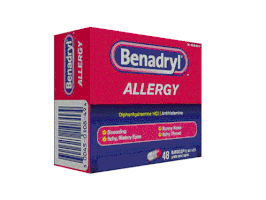 This category includes over-the-counter medications for cold, cough or allergies, such as Benadryl (diphenhydramine); tricyclic antidepressants, like nortriptyline; and medications for bladder spasms, such as oxybutynin. Medications can increase sunburn risk. Take precautions if your medication falls in any of these categories, identified by the FDA: antihistamines, coal tar and derivatives, birth control pills and female sex hormones, nonsteroidal anti-inflammatory drugs (NSAIDs), phenothiazines, psoralens, sulfonamides, sulfonylureas, thiazide diuretics, tetracyclines and trycyclic antidepressants. Medications can lead to dehydration.
This category includes over-the-counter medications for cold, cough or allergies, such as Benadryl (diphenhydramine); tricyclic antidepressants, like nortriptyline; and medications for bladder spasms, such as oxybutynin. Medications can increase sunburn risk. Take precautions if your medication falls in any of these categories, identified by the FDA: antihistamines, coal tar and derivatives, birth control pills and female sex hormones, nonsteroidal anti-inflammatory drugs (NSAIDs), phenothiazines, psoralens, sulfonamides, sulfonylureas, thiazide diuretics, tetracyclines and trycyclic antidepressants. Medications can lead to dehydration.
Dehydration can occur easily without influence of medication, so be 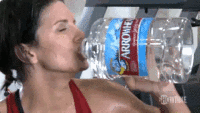 particularly mindful of your water intake if you are currently taking diuretics. Sometimes called water pills, diuretics help rid your body of salt and water to lower blood pressure and swelling, according to experts at the Mayo Clinic. The medicine can lead to dehydration because it causes increased urination. Following common sense rules will help make sure you stay safe for the remainder of the summer. Always wear at least 30 SPF sunscreen. Stay hydrated with generally 64 ounces of water per day, unless your doctor tells you otherwise. Watch for the following symptoms: dizziness, light headedness, headaches, weakness and nausea. If these develop, find a cool place to rest and drink water. Be safe and cautious out there and enjoy the rest of summer.
particularly mindful of your water intake if you are currently taking diuretics. Sometimes called water pills, diuretics help rid your body of salt and water to lower blood pressure and swelling, according to experts at the Mayo Clinic. The medicine can lead to dehydration because it causes increased urination. Following common sense rules will help make sure you stay safe for the remainder of the summer. Always wear at least 30 SPF sunscreen. Stay hydrated with generally 64 ounces of water per day, unless your doctor tells you otherwise. Watch for the following symptoms: dizziness, light headedness, headaches, weakness and nausea. If these develop, find a cool place to rest and drink water. Be safe and cautious out there and enjoy the rest of summer.






